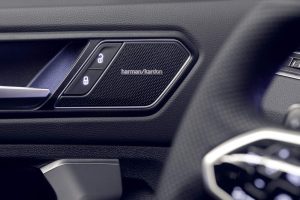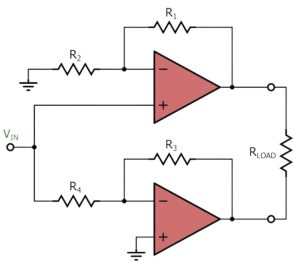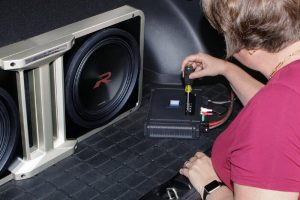Does a head unit affect sound quality? Yes, unequivocally. In the realm of car audio systems, the choice of head unit plays a pivotal role in determining the sonic experience you’ll enjoy during your drives. Whether you’re cruising down the highway or stuck in traffic, the head unit serves as the hub through which all your favorite tunes flow. But beyond mere playback control, its impact on sound quality is profound. As a user who has upgraded to aftermarket head units, I’ve witnessed firsthand how this component can either elevate or diminish the overall audio performance in a car stereo system. Let’s delve into the intricacies of head units and their influence on sound quality.
Contents
Understanding the Role of a Head Unit
At its core, the head unit is the nerve center of your car’s audio setup. It’s the device mounted in the dashboard that facilitates various audio functions, including radio reception, CD playback, USB connectivity, Bluetooth streaming, and more. Essentially, it’s where the magic begins—the point of origin for the audio signal that eventually reaches your ears through the speakers. As such, the quality of this signal processing hub profoundly impacts the fidelity and clarity of the sound you hear while driving.
Factors Influencing Sound Quality:
Several factors come into play when assessing how a head unit affects sound quality:
Signal Processing Capabilities: The processing power and algorithms embedded within the head unit determine how faithfully it can reproduce audio signals. Higher-end models often boast advanced digital signal processing (DSP) technology, resulting in cleaner, more accurate sound reproduction.
Digital-to-Analog Conversion (DAC) Quality: Digital audio files stored on CDs, USB drives, or streamed via Bluetooth are converted into analog signals for amplification and playback. The quality of the DAC chip inside the head unit significantly influences the accuracy and richness of the analog audio output.
Amplification Power and Clarity: Some head units come equipped with built-in amplifiers to boost the signal before it reaches the speakers. The power output and clarity of these amplifiers can vary widely between different models, impacting the volume, dynamics, and overall sound quality.

Equalization and Sound Customization Features: Many modern head units offer extensive equalization controls, allowing users to tailor the sound to their preferences. Adjustable parameters such as bass, treble, balance, and fade enable fine-tuning of the audio output to suit different musical genres and listening environments.
Compatibility with High-Resolution Audio Formats: As audiophiles increasingly embrace high-resolution audio formats like FLAC and WAV, the ability of a head unit to support these formats becomes crucial. Higher bit depths and sampling rates result in more detailed and lifelike sound reproduction, provided the head unit is capable of handling them.
Personal Experience with Aftermarket Head Units
Having experienced the transformative impact of aftermarket head units firsthand, I can attest to their significance in enhancing the in-car audio experience. Upgrading from a factory-installed head unit to a premium aftermarket model brought about a noticeable improvement in sound quality across the board. The clarity, detail, and dynamics of the music were greatly enhanced, allowing me to rediscover familiar tracks with newfound appreciation.
Moreover, the added features and customization options offered by aftermarket head units opened up a world of possibilities. From seamless smartphone integration and touchscreen interfaces to advanced audio tuning capabilities, the benefits were manifold. Suddenly, my car became not just a mode of transportation but a personal concert hall on wheels, where every note and nuance was faithfully reproduced with stunning accuracy.
Comparing factory-installed head units to their aftermarket counterparts further underscored the importance of choice in achieving optimal sound quality. While factory systems may suffice for casual listeners, audiophiles and music enthusiasts will undoubtedly find greater satisfaction in investing in a high-quality aftermarket head unit. The difference in sound fidelity and features is akin to upgrading from a standard-definition TV to a state-of-the-art 4K display—the improvement is unmistakable and immensely satisfying.
Tips for Choosing the Right Head Unit
For those considering a head unit upgrade, here are some tips to help navigate the vast array of options available:
Research Different Brands and Models: Take the time to explore the offerings from reputable car audio brands, paying attention to user reviews and professional evaluations. Look for models that strike a balance between performance, features, and value for money.
Consider Desired Features: Identify the features that matter most to you, whether it’s Bluetooth connectivity for hands-free calling and audio streaming, a user-friendly touchscreen interface, or compatibility with smartphone apps like Spotify and Pandora.
Pay Attention to Technical Specifications: Look beyond flashy marketing slogans and delve into the technical specifications of each head unit. Metrics such as signal-to-noise ratio (SNR), total harmonic distortion (THD), and frequency response can provide valuable insights into its audio performance.
Seek Professional Advice: If you’re unsure about which head unit is right for your needs, don’t hesitate to seek guidance from car audio professionals or fellow enthusiasts. They can offer invaluable recommendations based on their expertise and firsthand experience.
Conclusion
In conclusion, the answer to the question “Does a head unit affect sound quality?” is a resounding yes. As the central hub of your car’s audio system, the head unit wields significant influence over the sonic experience you’ll enjoy while on the road. Whether you’re seeking enhanced clarity, richer bass, or greater customization options, choosing the right head unit can make all the difference. So, whether you’re embarking on a cross-country road trip or simply commuting to work, consider investing in a high-quality aftermarket head unit to elevate your in-car audio experience to new heights. After all, life’s too short for subpar sound quality.






